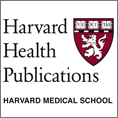savor
Mindful Eating, Mindful Life
savorthebook.com
Read More About
Mindful Eating
Mindful Living
Weight Loss
Exercise
Meditation
News
March 18, 2011

Dr. Cheung explains mindful eating and the important role it plays in our personal and collective recovery from obesity. Looking for ways to break unhealthy habits? In this interview, Dr. Cheung tells us how.
February 1, 2011

Does this sound familiar? You’re at your computer, facing a wall of e-mails. After composing a reply, you hit “send” and reach for the bulging tuna wrap on your desk. After a few bites, chewing while glancing at the screen, you set the wrap down, grab a handful of chips, and open the next message. Before you know it, you’ve finished lunch without even noticing it. A small yet growing body of research suggests that a slower, more thoughtful way of eating could help with weight problems and maybe steer some people away from processed food and other less-healthful choices. This alternative approach has been dubbed “mindful eating.” It’s based on the Buddhist concept of mindfulness, which involves being fully aware of what is happening within and around you at the moment. In other areas, mindfulness techniques have been proposed as a way to relieve stress and alleviate problems like high blood pressure and chronic gastro intestinal difficulties...
Read the complete article attached.
January 13, 2011

Our daughter Liv is eight years old. We adore her. To the chagrin of her parents, however, she likes to eat slowly – with dinner taking up to 45 minutes to get through. This stands in stark contrast to our habits created over decades of eating quickly (unless at a celebratory event where this would be inappropriate!), and then moving on to the next thing on the agenda… So we have been encouraging her to speed up her chewing. But, it turns out, studies on nutrition and health show that it is in fact us who need to slow down and we should be learning from our eight year old.
To find out more I picked up ‘Savor’, by Harvard lecturer Dr. Lilian Cheung and Thich Nhat Hanh (whom the New York Times calls ‘second to the Dalai Lama’). ‘Savor’ is a dense and extremely informative read. But what differentiates it from many books on healthy nutrition is that it introduces practical elements of ‘mindfulness’ into the mix – based both on Buddhist inspiration and on scientific evidence. Being in the here and now not only promotes optimal weight and health, but also more general well-being. I spoke with Cheung to find out more about her research, her personal journey and what her ethos can do for us.
The role
Lilian Cheung is director of health promotion and communication at the Harvard School of Public Health. She also serves as editorial director for the school’s Nutrition’s Source website, The Nutrition Source, and has been teaching at Harvard since 1985. Her role is to translate nutrition science into multimedia resources and community programs that promote healthy lifestyles for children, adults and families. Moderator, author and researcher, she was also pivotal in the launch of ‘Eat Well & Keep Moving’, a nutrition and physical education program for elementary school children. In addition, she regularly blogs on her own website on mindful eating and living.
Planting the seeds
Born in Hong Kong, Cheung was raised in a traditional Chinese family. As a teenager she wanted to be a doctor. Her mother did not think this was advisable for a woman though, as to have a demanding career would interfere with having a family. Her mother’s influence was significant in other areas too, “She introduced me to the field of nutrition as food is very important in Chinese culture, it is considered a form of preventive medicine.” Raised in Confucianism, which encourages children to show respect for the wishes and demands of parents, Lilian Cheung agreed and pursued this as her career.
At 16 Cheung finished her final year of high school in Canada and then went on to get her bachelor’s degree from the University of Guelph, Canada, and a master’s degree and a doctorate in nutrition from Harvard University.
Ironically, Cheung found herself gaining close to 25 pounds over this period – primarily due to eating in the school’s dining halls. Moving off campus and going back to the basics of Chinese cuisine, however, allowed her to lose all the weight quickly and without too much difficulty. This experience set her on a path of emphasizing the importance of wholesome, unprocessed food and healthy lifestyles in the educational sector...
September 20, 2010

Low in calories, naturally fat- and cholesterol free, more potassium than four bananas, and super hydrating - these are just a few of the many benefits ascribed to America’s latest health craze: coconut water.
Dubbed "Mother Nature’s sports drink" by marketers, the demand is skyrocketing, propelled by celebrity and athlete endorsements and promises to hydrate the body and help with a whole host of conditions, from hangovers to cancer and kidney stones.
But is coconut water capable of delivering on all the promises or is it hype?
September 14, 2010

As obesity rates continue to climb, the USA is still not eating enough fruits and vegetables, says a new state-by-state analysis from the federal Centers for Disease Control and Prevention. Consumption is even decreasing in some states.
Nationally, the percentage of adults who eat fruit twice a day or more was just 32.5% in 2009, down from 34.4% in 2000. The percentage who eat vegetables three or more times a day remained relatively the same: 26.3% in 2009, down just a fraction from 26.7% in 2000.
No state met the government target that aimed to have 75% of adults consuming two or more fruit servings a day and 50% consuming three or more vegetable servings a day. That goal was spelled out in a report called Healthy People 2010 by the Food and Drug Administration and the National Institutes of Health.
August 19, 2010

In their new book, Savor: Mindful Eating, Mindful Life (HarperOne, 2010), Vietnamese Buddhist monk Thich Nhat Hanh and nutritionist Lilian Cheung, a lecturer at the Harvard School of Public Health, apply ancient Buddhist mindfulness techniques to eating in the modern world. “It is not just what we consume, but how we eat, when we eat, why we eat, and whom we eat with that makes a difference,” says Cheung, who grew up in a Buddhist home in Hong Kong. A longtime student of Hanh’s work, Cheung years ago saw an opportunity to weave together Buddhist wisdom with modern nutritional science, and suggested that she and Hanh collaborate on a book. “We nutritionists can talk all we want about the best diets,” she says, but until people understand the physical, psychological, cultural, and environmental factors that make us binge, “they will almost always continue to overeat.”
August 1, 2010

Fruit juice in the same category as soda? This is the sort of generalizing that happens when foods are reduced to nutrient profiles. The truth is that SSBs, like cookies, cakes, or other sweet nothings, aren't inherently bad. But consuming too much of them is.
Studies have essentially linked SSB consumption to weight gain, which in part may be due to the fact that liquid calories go down so easily—so easily that we do a bad job of cutting back elsewhere in our diets to compensate for the extra calorie intake.
But the harm likely comes from more than just the calories. Research indicates that a steady stream of liquid sugar can wreak havoc on your body. According to Lilian Cheung, DSc, RD, Director of Health Promotion and Communication at Harvard's School of Public Health, "Drinking sugary beverages on a regular basis is associated with an increased risk of becoming overweight or obese, developing diabetes and possibly high blood pressure, unfavorable blood lipid profiles, inflammation, and heart disease."
July 28, 2010

This week’s guest was Dr. Lilian Cheung. She is the co-author of Savor: Mindful Eating, Mindful Life along with renowned spiritual teacher Thich Nhat Hanh. This extraordinary book will transform your relationship with eating and with food. It’s packed with tools, techniques and fabulous information.
June 24, 2010

Most American men consume about 11 grams of salt every day. It's one of our basic tastes, and it's in just about everything we eat.
"Nightline" investigates what too much salt and sodium can do to your body. Although we do need some salt to live, many doctors say those 11 grams -- less than two teaspoons a day -- are killing 150,000 people each year.
The U.S. Food and Drug Administration and doctors have declared a renewed attack in the war on salt. This attack is aimed at restaurants that overuse it and the manufacturers that liberally use salt to process food.
The push is also an attempt to educate consumers, who, for the most part, are oblivious to the amount of salt in their food.
According to Dr. Frank Sacks, a professor of cardiovascular disease prevention at Harvard who is at the forefront of the war on salt, the food industry and our own taste buds have contributed to our salt consumption.
June 16, 2010

When Lilian Cheung first met Zen Master Thich Nhat Hanh (known as “Thay” to his millions of followers) she thought she had found the fountain of youth. “Thay is 85 years old, but his mind is so lucid. He was exposed to agent orange for years in Vietnam, but he looks incredible. On his retreats he wakes up at 5:30 and leads a morning exercise of Thai Chi. A lot of the younger folks can not keep up with him!” Thay’s secret, according to the book, is mindfulness, an ancient Buddhist practice that can help you finally stick with healthy habits such as eating right and exercising. FOF spoke with Dr. Cheung about Savor and her own quest to become “a part-time Buddha.”
-
FOF: You’ve been a nutritionist at Harvard for many years. How did you get involved with Thich Nhat Hanh?
- Dr. Cheung: I attended his first retreat in 1997 in Key West. I got a brochure in the mail at home. The subject of the retreat—Touching More Peace and Joy in Your Life--was very interesting to me. It was a hectic time in my personal and professional life. I have three kids.
-
FOF: You’re a busy FOF.
- Dr. C: Yes. So I went to the retreat. Over nine hundred people attended.
-
FOF: Wow.
- Dr. C: We spent nine days together and half of the retreat was in total silence. We practiced mindful eating, mindful walking and mindful breathing. Thay was teaching mindfulness in a very experiential way.
-
FOF: What exactly is mindfulness?
- Dr. C: Being aware and present in the moment so that we can focus on the truth.
-
FOF: Can you give a real-word example?
- When you’re walking somewhere, you’re probably thinking about your work, or your kids or your next appointment. When you walk mindfully, you focus just on the walking. You connect your body and your mind together through breathing.
-
FOF: I think I get it.
- Dr. C: Thay is very good at teaching you to integrate mindfulness into the most mundane, everyday routines. In the book we have the traffic jam meditation; the grocery line meditation—even the email meditation. Before you send an email, take three deep breaths to so you can calm down and focus on the task at hand. That way, you don’t make any mistakes like sending to the wrong person!
-
FOF: I love that. How does this apply to eating and diet?
- Dr. C: As a nutritionist, I know how to tell people to eat more fruits and vegetables, but the difficult part is sticking with it! Through mindfulness, we can actually change our brains and maintain these habits.
- FOF: Okay, so how would you incorporate mindfulness into how you eat breakfast in the morning...
Pages
SAVOR: Mindful Eating, Mindful Life. Copyright © 2026 by Thich Nhat Hanh and Lilian Cheung. All Rights Reserved. Please review our terms of use
Website design
Mary Pomerantz Advertising



